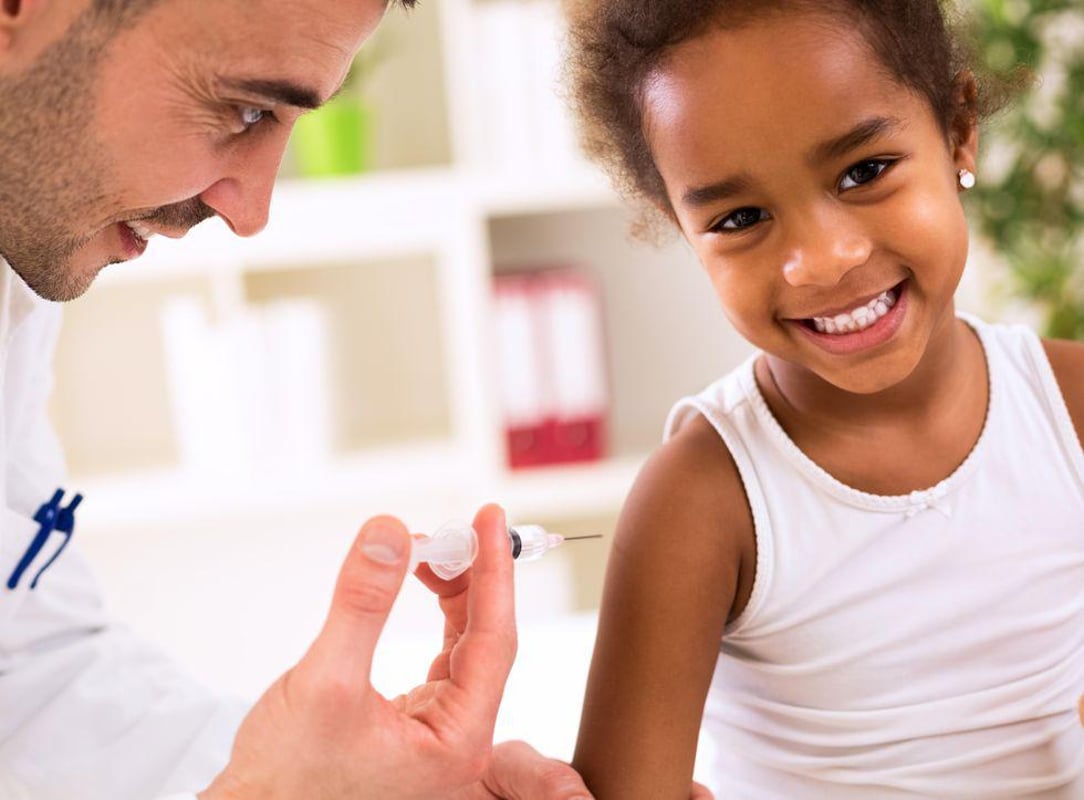Pfizer Asks FDA to Approve Its Vaccine for the Youngest Children

WEDNESDAY, Feb. 2, 2022 (HealthDay News) -- Pfizer Inc. announced Tuesday that it has asked the U.S. Food and Drug Administration to authorize its two-dose COVID-19 vaccine for emergency use in children younger than 5 years, while it continues to research the power of a third shot in these youngest Americans. If the FDA grants the request, the two-shot regimen would become the first approved for use in children this young; older children are already eligible for the vaccine.
"As hospitalizations of children under 5 due to COVID-19 have soared, our mutual goal with the FDA is to prepare for future variant surges and provide parents with an option to help protect their children from this virus," Pfizer Chairman and CEO Albert Bourla, said in a company statement announcing the move. "Ultimately, we believe that three doses of the vaccine will be needed for children 6 months through 4 years of age to achieve high levels of protection against current and potential future variants. If two doses are authorized, parents will have the opportunity to begin a COVID-19 vaccination series for their children while awaiting potential authorization of a third dose."
An FDA advisory panel will weigh the two-dose regimen on Feb. 15. But at least one panel member voiced concerns about the highly unusual "rolling authorization." Paul Offit, M.D., director of the Vaccine Education Center at Children's Hospital of Philadelphia, suggested that regulators could be short-circuiting the normal process without a clear rationale. "It doesn't make sense we would approve a two-dose vaccine on the assumption the third dose would make up for deficiencies of the two doses," he told The New York Times.
The deficiencies were significant: One person familiar with the data, who spoke on condition of anonymity, told The Times that children aged 2 to 4 years who were given two shots were infected at a rate 57 percent lower than the children who were not, and those between the ages of 6 months to 2 years who got shots were infected at a rate 50 percent lower than those who were not. There were fewer than 100 cases of symptomatic infection -- a small fraction of the participants overall -- and the margins of error were wide, the person noted.
FDA panel member H. Cody Meissner, M.D., chief of the pediatric infectious diseases division at Tufts Children's Hospital in Boston, said he was willing to weigh the "rolling authorization" strategy, but he worried that rare side effects might be missed in the small-scale trials conducted so far. The panel's decision "will partly depend on what are the rates of hospitalization and severe disease in this age group, and what our sense is in terms of potential harm" should the two-dose regimen be authorized, Meissner added.
But Acting FDA Commissioner Janet Woodcock, M.D., and Peter Marks, M.D., who oversees the agency's vaccines office, said Tuesday that it was important to act quickly given the surge in omicron cases and the likelihood that other variants will follow. "The need for a safe and effective vaccine for our youngest children is significant, particularly given the rapid spread of the omicron variant, the notable rise in the number of hospitalizations in young children with severe disease, and the possibility that future variants could cause severe disease in those who are unvaccinated," Marks said in an agency statement.
Related Posts
Fat Injections Might Ease Pain of Plantar Fasciitis
WEDNESDAY, Jan. 26, 2022 (HealthDay News) -- Belly fat is usually unwelcome, but...
Taking Longer to Perform Tasks? It Could Be a Sign of Dementia Risk
TUESDAY, May 2, 2023 (HealthDay News) -- It’s expected that seniors slow down...
FDA Warns Against Using Bogus Treatments for Skin Condition Molluscum
MONDAY, June 5, 2023 (HealthDay News) -- It’s tempting to treat little skin...
¿La próxima gran vacuna contra la COVID será inhalada?
MARTES, 15 de febrero de 2022 (HealthDay News) -- La inyección quizá pronto sea...
